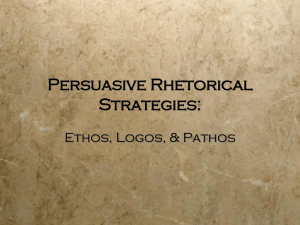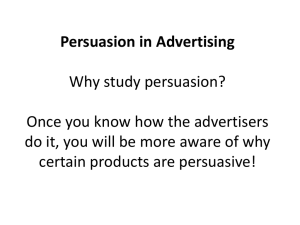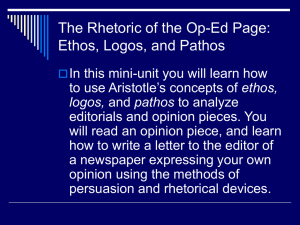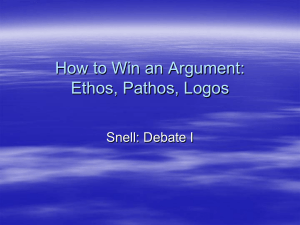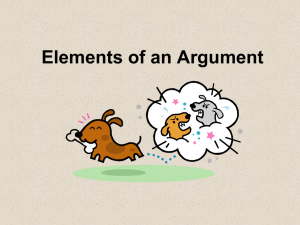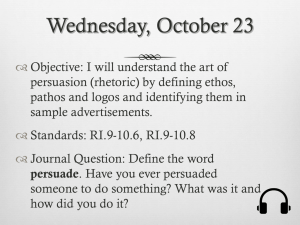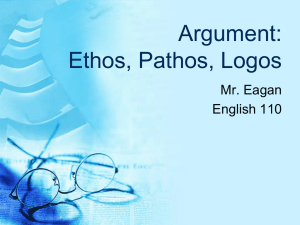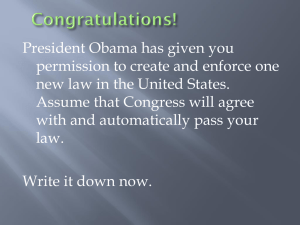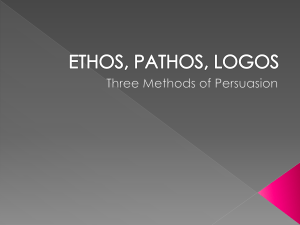Ethos, Pathos and Logos
advertisement
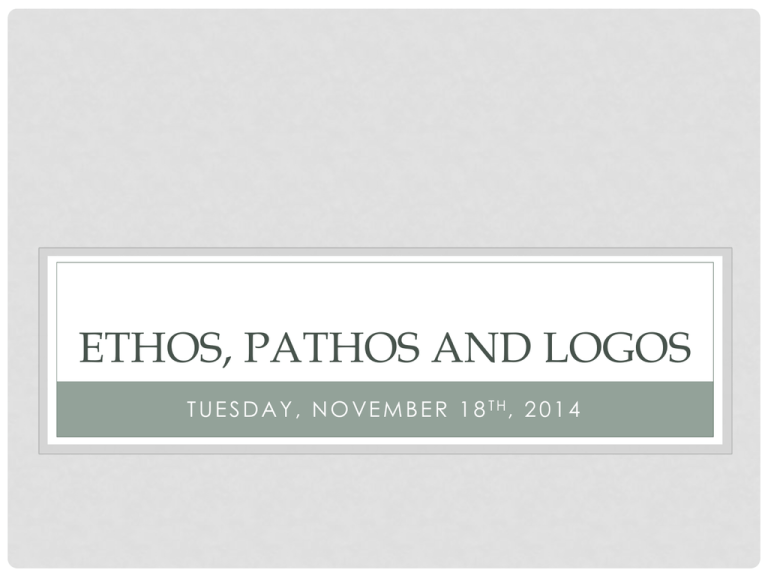
ETHOS, PATHOS AND LOGOS T U E S D A Y , N O VE M B E R 1 8 TH, 2 0 1 4 How is persuasion and media related? LEARNING GOALS • Today I am learning to: • What Aristotle’s Modes of Persuasion are (ethos, pathos and logos) • How Modes of Persuasion are used in writing and connected to media • How to write an argumentative paragraph WHO AM I? “It is the mark of an educated mind to be able to entertain a thought without accepting it.” ARISTOTLE • Greek philosopher and scientist • Born 384 BC • Joined Plato’s Academy in Athens when he turned 18 – remained here until he was 37 • Tutored Alexander the Great • He wrote on many topics including, philosophy, zoology, physics, linguistics, etc. RHETORIC • One of the topics he focused on was rhetoric • Rhetoric is the art of speaking or writing effectively • He came up with the idea of rhetorical strategies or devices called. “Modes of Persuasion” • These classify the speaker’s appeal to the audience 1. Ethos 2. Pathos 3. Logos ETHOS • Greek for ‘character’ • Refers to the credibility or ethical appeal • We tend to believe people whom we respect • You must project to your viewers that you are worth listening to PATHOS • Greek for ‘experience’ • Appeals to the viewer’s emotions • Language choice affects the audience’s emotional response, and emotional appeal can effectively be used to enhance a story/argument LOGOS • Greek for ‘word’ • Persuading the audience with reason or logic • This is the most important of the three and Aristotle’s favourite • Giving reason or support is at the heart of argumentation RAP LYRICS ON TRIAL • As we read through the article, highlight/underline/circle examples of Logos, Pathos and Ethos • Use a different colour for each THINK PAIR AND SHARE • Have you ever tried to persuade a family member or friend? What was it about? What did you use to convince this person of your argument? • Did you use statistics or logic? • Did you present yourself as someone who was responsible? • Did you attempt to make the person feel bad? • Which appeals worked best? YOUR TURN TO ARGUE • Use rhetorical devices (ethos, pathos and logos) to write a persuasive argument on one of the questions below. 1. 2. 3. 4. 5. 6. 7. Should the private lives of the famous be off limits? Should athletes who abuse illegal drugs have to give up their titles and medals? Is school designed more for girls than boys? Should there be stricter rules about how coaches treat their players? Should what you say on Facebook be grounds for getting fired? When should you be able to buy cigarettes, drink alcohol, vote, drive and fight in wars? Does the use of technology in class effect a student’s learning? ETHOS, PATHOS, LOGOS ARGUMENT WILT (What I’m learning today): • What Aristotle’s Modes of Persuasion are (ethos, pathos and logos) • How Modes of Persuasion are used in writing and connected to media • How to write an argumentative paragraph WILF (What I’m looking for): • • • • Use of ethos in argument Use of pathos in argument Use of logos in argument Evidence of stance/purpose/evidence in paragraph writing 1. 2. 3. 4. 5. 6. 7. Topics Should the private lives of the famous be off limits? Should athletes who abuse illegal drugs have to give up their titles and medals? Is school designed more for girls than boys? Should there be stricter rules about how coaches treat their players? Should what you say on Facebook be grounds for getting fired? When should you be able to buy cigarettes, drink alcohol, vote, drive and fight in wars? Does the use of technology in class effect a student’s learning?
